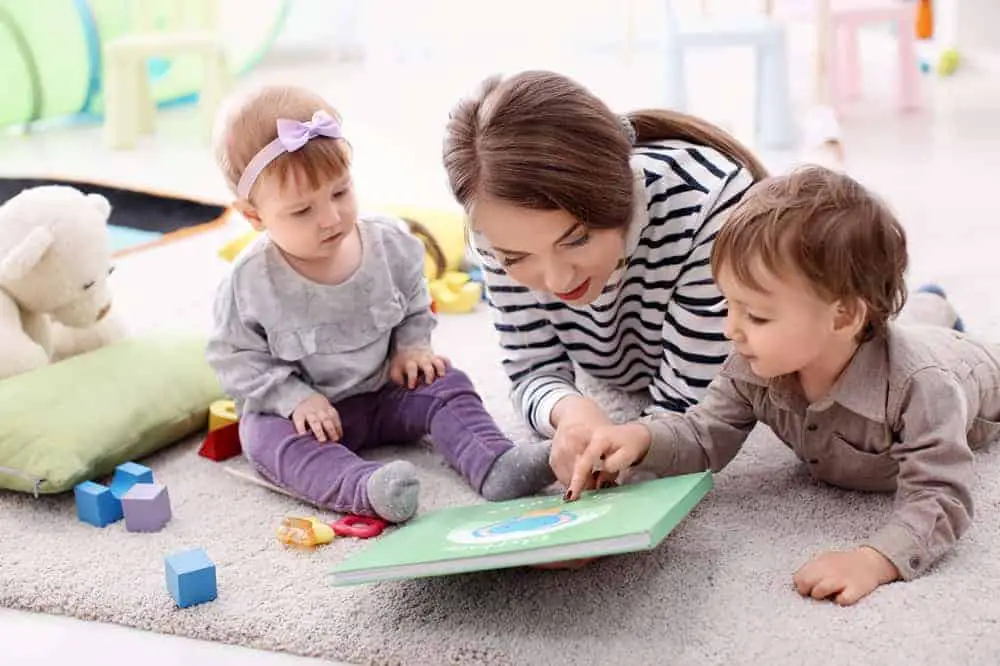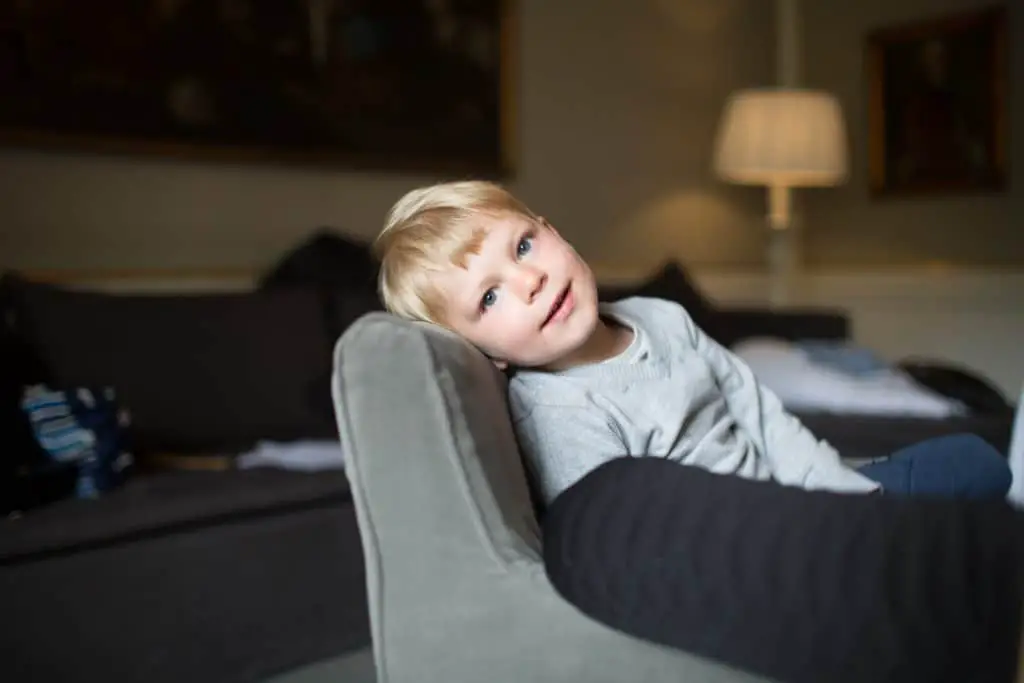When you are a parent, you are always concerned with the development of your child and the first question you often find yourself asking is, when should my child start talking? Toddler speech guidelines can be very helpful is keeping up with your child’s development.
While every child develops at his own pace, there are some guidelines that can be used to assess your child’s communication development.
Even before your child utters their first coo or full-fledged word she is absorbing info from everything around them. This info-gathering will eventually form the child communication and speech playbook, so make sure you are talking to your baby about everything and anything.

The truth is that even before they come into this world in a fury of sound and light your child is already in the info gathering mode. That’s right — in your womb, they are already beginning to develop. This is why it is suggested that you talk to, read to, and play music to your tummy during pregnancy.
How do you know if you are connecting with your toddler? The best way is to tune in with facial expressions and nonverbal communications like smiles, laughter, and touch.
Making sure you are always talking to your child with your eyes looking into theirs and even using that baby voice if it seems helpful.
Did you know that, while many dislike “baby voices”, they have been scientifically proven to improve the child’s conversational skills?
Let’s take a good look at some of the speech milestones that you can use as a guideline for your child’s verbal and communication development.
Toddler Speech Guidelines: When Should They Start Talking?
You should not expect much for the first six months except for the normal coos, gurgles, and sighs. For now, that is your baby’s method of communication. Fortunately, just like all parents, you will become adept at knowing which one sound means what.
These will, of course, begin to develop starting with the cute and cuddly cooing at roughly one month and then followed in month two by smiles. There is nothing like that first smile!
Spoken words wise, you really won’t get much actual verbal communication from your child until roughly one year old. So, when do you get to the good stuff — like “mama” and “dada”?
There is no definitive time frame, but there are some typical milestones you can set your clock to. Bear in mind, once again, that each child develops at her own pace and in her own way. With that being said, the timeline should look a little something like this:
The Six-Month Mark
Babble, babble, babble. That is what’s going on in this phase. Your baby is learning to string together short consonants. That is actually very important because those short bursts of language will be key in the formation of the rest of his vocabulary.
This phase is more about gaining and storing the concepts of receptive language. Receptive language is when a child understands what a word is even without being able to repeat it back to you. For instance, “no” or even “mama” are some of the first things most babies understand before being able to speak.
The Nine-Month Mark
At this age, your baby is still able to understand more than she is able to communicate. She should now be able to string multiple consonants and vowels together.
These “words” will likely still sound like gibberish. Why? Because your baby is still unable to form full words with his mouths because his motor skills are still in the process of developing. In addition, your baby has not yet achieved the cognitive ability to associate words with objects or thoughts yet.
The First Year and After
It’s time to brace yourself for a lot less silence. That’s right — this is when the good stuff starts. Your baby should now be able to identify who you are and call you by your chosen parental name.
Though at first, the speech may still be a little garbled, by a year-and-a-half the words should ring clear and by two years, be ready to hear lots of full sentences. Get set to hear lots and lots of “Why?” inquiries.
With a basic idea of what to expect, you are probably wondering if there is anything you can do to help your child in the speech development process.
Ways to Stimulate Speech in Your Toddler
The human brain is very able to learn a communicable language and, though there may be some reasons why your child has some speech delay, for the most part, they will learn a language so that they can get what they need to survive.
But like with everything there are always ways you can enhance their process and stimulate their brains in a way that promotes an easy path for them while they are developing their communication skills. Here are a few key things that you can do as a parent.
Be a Chatty Cathy or Carl
The more words you use in conversation the more words available to add to the child’s lexicon. So just by talking to your child, you are helping him with his development. It not only adds words to his knowledge bank but also helps with word association. So, talk to him! When he makes nonverbal cues towards something, state what the object is to help him move toward verbally identifying the object the next time.
No Pronouns
Using detailed names as opposed to him, her, or it will allow your child to create reference associated with a specific person or thing.
Slow Down and Enunciate
Some sounds are still difficult for your child to produce with their mouth when they are still learning. As a result, if you take your time and enunciate, it will be easier for your child to imitate your mouth movements and eventually the word as well.
Music is Great for Development
Music has been scientifically proven to aid in the development of the brains of young children. So, taking the idea of music one step further, the speaking of words in a sing-song tone can help with word comprehension in toddlers.
Can You Repeat That?
When your baby begins to babble, she is saying that she is ready to begin learning and building her vocabulary. Now is the time to stop using as much baby talk and begin to use full words and sentences to describe things.
You will definitely need to repeat yourself a few times. At this age, though it is not because he is ignoring you, it is a way to enforce the association with the word and the object. No guarantees that by the time he is a teenager, he may actually be ignoring you!
Limit TV Time
Language is more important than visuals when it comes to television. While some tv is fine, try to keep it off as much as possible. Instead, sit eye to eye with your toddler and talk about topics that she is interested in.
Imitation is the Sincerest Form of Flattery
Take the time to explain every action in detail so that your child can begin to create a vocabulary of words that is vast and rich. This also helps with communicating ideas later in their development. Your child will eventually begin to do the same and this will enhance his overall development and fluency.
These are just a few techniques of techniques you can use in your everyday life to help aid your child’s communication development. But what if even these techniques don’t seem to stimulate your child’s speech development?

What if They Still Aren’t Talking?
The breakdown above is not a one-size-fits-all solution. In fact, as stated above, many kids will develop at their own pace — and this is very normal. But if you are truly worried about the fact that your child is not talking yet, there are several steps and things you can do to make sure that there is not a bigger problem.
The faster you acknowledge that there is an issue, the better and easier it is to take positive steps to help your child grow. Toddler speech guidelines can be very helpful in this regard.
If your child has not said his first word by the age of two and does not have at least 50 words understood, you should reach out for a consultation with a professional. Often the first place you go to is the Ear, Nose and Throat doctor.
Here are some of the tests that your doctor may suggest for you:
- Evaluation of speech – A specialist in speech pathology deals with children with all levels of communication issues. This includes children that fall on the autism spectrum, lisps, stuttering and development issues.
- Screening for development issues – These tests are done to ensure your child is meeting the appropriate toddler speech guidelines for communication development.
- Hearing tests – Hearing and speech are two peas in a pod. If one suffers, the other may as well. This is one of the first tests your child will be given after birth and the frequency of these tests will continue until they are through their development phase. If your child’s hearing is impaired, it may detract from her ability to understand the formation of vowels and consonants that are important for speech development.
Final Words
In the end, the question of when do babies talk really varies with each individual child and their level of development. The word “normal” when you are dealing with a child is not helpful, but there is a point where you need to start considering whether there is an issue and if you need to take steps.
Nobody knows a child like his parents, regardless of toddler speech guidelines. So, trust your gut. If you feel there is something amiss, do not hesitate to reach out to your medical professionals.

